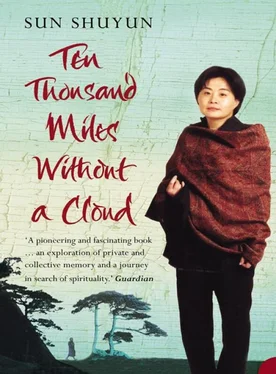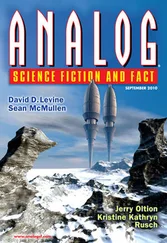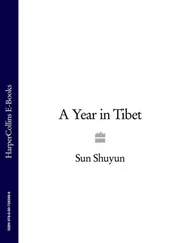As it went on, the Cultural Revolution became ever more extreme. There was no more singing and dancing, no parading. It progressed to blows, bloody noses and bruised eyes; from debates to vituperation and violence. I often ran home, scared. Then barricades began to appear in the streets, and rifles and cannons. I was no longer allowed out of the house, which was almost like a fortress, with sandbags at the door and all the windows boarded up. Only my father could sneak off in his officer’s uniform and buy groceries. At night we huddled together in the dark, listening to the gunshots snapping like fireworks. Grandmother was confused. ‘Are the Japanese invading us again?’ she asked my father. ‘Why are people killing each other?’ He did not answer. It was no circus any more.
I retreated to my book. I still remember reading The Monkey King for the first time. It was sheer magic: every step of the way was an adventure, replete with hordes of gods and goddesses, fairies and spirits, humans and demons. I felt transported to another world where nothing was impossible.
But I felt irritated too. I could not see why the monkey wanted to protect a hopeless, feeble monk. He had to go through ‘mountains of knives and seas of flame’ to find the sutras. What were they for? Why did he not just forget about them? Besides, how could the powerless monk have control over the almighty monkey simply by reciting a spell? Who was the Buddha anyway?
In the evening, I raised these questions with Grandmother. She hesitated, but I insisted. She asked me to close the door. ‘Sutras are very important. That’s why the monk risked his life getting them.’
‘But the monkey found them for him, really,’ I protested.
‘That is the story. In real life, the monk went on his own,’ Grandmother said quietly.
‘How do you know so much?’ I asked Grandmother.
‘Oh, a monk in our temple in the village was a great fan of Master Xuanzang. He told us a lot about him.’
‘It isn’t possible. Devils were waiting for him every step of the way. He would have been dead a hundred times over. He was so useless.’
While Grandmother was explaining to me what the monk really did, I felt my eyes were closing. I slept, and dreamed I was very thirsty, as if I were struggling in the desert and could not find the way. For a long time afterwards, I saw the monkey and the monk in my dreams.
They remained vividly in my memory. But it was no more than that until many years later, when I met an Indian history student in my college’s common room in Oxford.
‘I know about someone from China.’
‘You have friends there?’
‘No.’
‘Do you mean Mao?’
He shook his head. There was a look of disappointment on his face, as if it was obvious and I ought to know. He straightened up, and put down his drink. ‘It is Xuanzang. You must know about him.’
‘Of course, he is the monk in The Monkey King. It’s one of the most popular Chinese novels,’ I explained.
‘He is India’s great friend. We love him. He was an extraordinary man. He preserved a large part of our history for us.’
I must have looked surprised, and I felt embarrassed. ‘I know who you mean,’ I said.
But I was puzzled. Could this be the same Xuanzang? I dimly remembered from school that Xuanzang had written about his journey, but we were never taught about him, nor did we read his book, The Record of the Western Regions. The next day I went to the Bodleian Library to see if I could find it. It was there, of course, and also The Life of Xuanzang , the biography written by his disciple, Hui Li, both in English. I sat down at once in the Upper Reading Room and began to read.
I became completely absorbed. For the next three days I hardly did anything else. I felt I was on a treasure hunt, each page its own reward, but giving me a clue to the next discovery. I could not believe the wealth of information contained in the two books. The sheer number of cities and towns he visited, the history and legends associated with each place, the kings who ruled with righteousness, the Buddhist masters and their luminous wisdom – his Record is an encyclopaedia of the history and culture of the time; it is the testimony to a lost world. I wondered how much of it remained to be rediscovered.
The Record gives you no impression of Xuanzang himself nor of his adventures on the journey; those you find in the biography. It was a total revelation. Xuanzang was lost in the desert for four days without water. He was robbed many times – once pirates even threatened to throw him into the river as a sacrifice to the river goddess. He was almost killed by an avalanche in the Heavenly Mountains. At one point he even had to go on hunger strike to be allowed to continue his journey. The monk whose biography I was reading bore no relation to the one I had known from childhood. In fact, he was the very opposite of the helpless man in The Monkey King. He embodied determination, perseverance and wisdom. They were both monks, and both went to India in search of sutras – but there the resemblance ended.
Grandmother was right after all. There was a real Xuanzang. He was born into a scholarly Confucian family in 600 AD, in Henan Province, the cradle of Chinese civilization. He was the youngest of four sons and lost his parents when he was an infant. A serious child, he did not want to play with other children; even at festival times he stayed in and read. He soon became fascinated by monastic life – one of his brothers was initiated as a monk early in his life, and Xuanzang often went to stay with him in his monastery.
When he was thirteen years old, an imperial decree announced that fourteen monks were to be trained and supported by the state at his brother’s monastery. Several hundred candidates applied. Xuanzang was too young to qualify but he had set his mind on it. He lingered round the examination hall all day until the imperial invigilator noticed him and called him in. When asked why he was so keen on becoming a monk, he replied: ‘I wish to continue the task of the Buddha and glorify the teachings he bequeathed.’ The invigilator was surprised by this answer from a young boy who seemed to know his mind so well. He made an exception for him.
Xuanzang took to monastic life like a fish to water. He studied day and night, with little sleep or food. After hearing a sutra only twice, he could remember every word. But his studies were soon interrupted by a major peasant uprising. ‘The capital has become a nest of bandits,’ as he later told Hui Li. ‘Law and order has broken down completely. The magistrates have been killed and the priests have perished or taken flight. The streets are filled with bleached bones and the rubble of burned buildings.’
He and his brother fled first to the capital, Chang’an, today’s Xian, but there were few monks there: most had gone to Sichuan in the southwest, where, isolated by high mountains and the Three Gorges of the Yangzi River, life was unaffected by the war. Xuanzang followed them and was able to learn from monks from all over the country who had taken refuge there. Within two or three years, he mastered all the Buddhist scriptures of different schools and soon made a reputation for himself. He and his brother preached with an ease and eloquence that the local people had never heard before. And Xuanzang in particular made a strong impact. He was almost six feet tall, with bright eyes and a clear complexion, and he cut an impressive figure in his Buddhist robe, graceful, serious and dignified. When he spoke, his sonorous voice had a hypnotic effect. His loftiness of mind, his lack of attachment to worldly things, his insatiable curiosity about the metaphysical aspects of the cosmos, and his ambition to clarify the meaning of life left a deep impression on everyone who came into contact with him.
Читать дальше












